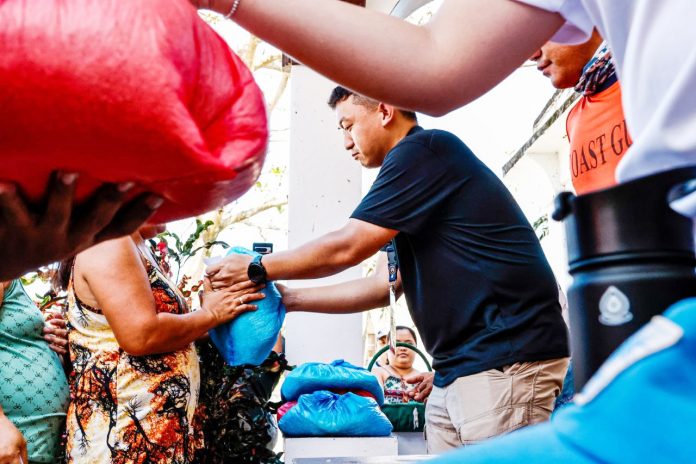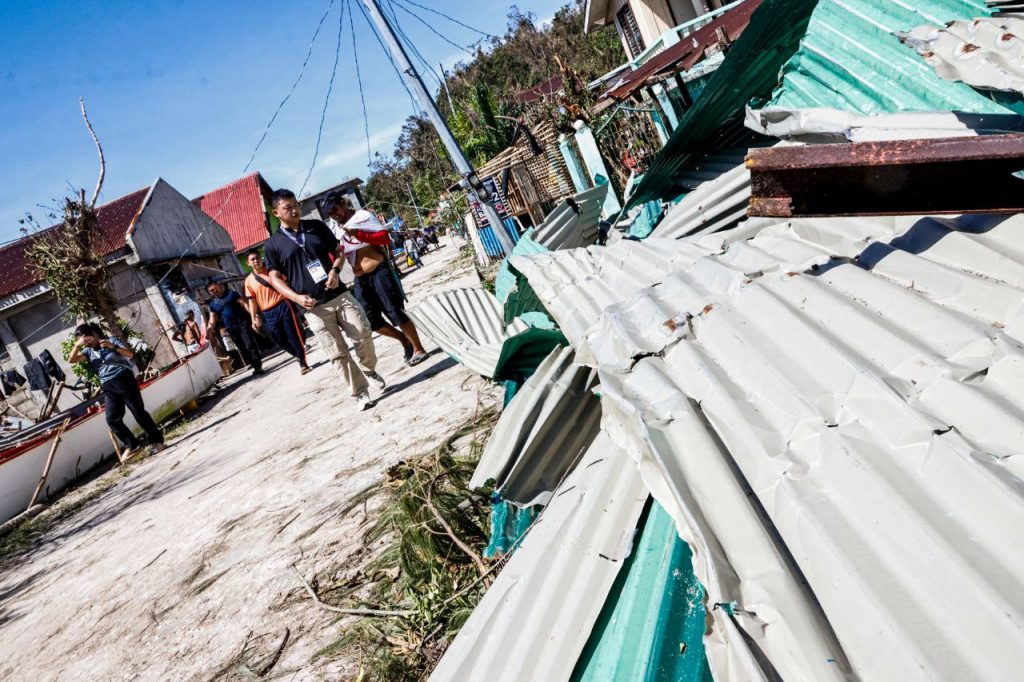Globe continues to deliver critical support to communities affected by Typhoon ‘Tino’, with accelerated restoration efforts across the Visayas and Mindanao. The company has deployed technical teams, activated Libreng Tawag and Libreng Charging (LTLC) stations, and is preparing for wider relief operations in severely impacted areas.
Globe services have been fully restored in the hardest-hit areas of Dinagat Islands and Surigao del Norte in Mindanao. In the Visayas, Aklan, Antique, Biliran, Bohol, Capiz, Eastern Samar, Guimaras, Northern Samar, and Siquijor have also achieved 100% network restoration. Ongoing restoration continues in the hardest-hit provinces of Cebu, Leyte, and Negros Occidental, where Globe teams remain deployed to expedite full recovery.
In partnership with Ayala Foundation Inc. (AFI) through Brigadang Ayala, Globe has begun relief efforts for affected communities. The first batches of food assistance include 500 food packs distributed to Barangay Dumlog in Talisay City and another 500 food packs delivered to Barangay Bonbon in Cebu City, both in coordination with local government partners.
Additional relief deployments are being coordinated with local government units and partner organizations to reach more families in need across the Visayas and Mindanao.
To support residents in these high-impact communities, Globe activated the following Libreng Tawag, Libreng Charging, and Libreng WiFi(LTLCW) sites to provide free calls, device charging, and WiFi access: Brgy. Bacayan Gym, Cebu City, Cebu, November 5 to 7, 8:00 a.m. to 5:00 p.m. (Libreng Tawag and Wifi); Poblacion, Tolosa, Leyte November 5 to 7, 8:00 a.m. to 5:00 p.m. (Libreng Tawag and Wifi); Visayas State University (VSU), Baybay City, Leyte, November 5 to 7, 8:00 a.m. to 5:00 p.m. (Libreng Tawag and Wifi); Brgy. Handumanan Gym, Bacolod City, Negros Occidental, November 5 to 7, 8:00 a.m. to 5:00 p.m. (Libreng Charging only); Chapel of Phase 1, Villa Leyson, Bacayan, Cebu City, Cebu November 6 to 8, 8:00 a.m. to 5:00 p.m. (Libreng Tawag, Charging, and WiFi); Talisay City National High School, Talisay City, Cebu, November 6 to 8, 8:00 a.m. to 5:00 p.m. (Libreng Tawag, Charging, and WiFi); Lobby, Consolacion Municipal Bldg, Consolacion, Cebu, November 6 to 8, 8:00 a.m. to 5:00 p.m. (Libreng Tawag, Charging, and WiFi); Chapel of Phase 1, Villa Leyson, Bacayan, Cebu City, Cebu, November 6 to 8, 8:00 a.m. to 5:00 p.m. (Libreng Tawag, Charging, and WiFi); Brgy. Estefania Barangay Hall, Bacolod City, Negros Occidental November 6 to 8, 8:00 a.m. to 5:00 p.m. (Libreng Charging only); and Ayungon Municipal Hall, Ayungon, Negros Oriental
November 5 to 8, 8:00 a.m. to 5:00 p.m. (Libreng Charging only).
To help affected customers stay connected and supported, Globe has extended its Alagang Globe initiatives across the provinces of Antique, Biliran, Bohol, Cebu, Eastern Samar, Iloilo, Leyte, Negros Occidental, Negros Oriental, and Southern Leyte in the Visayas, as well as Dinagat Islands and Surigao del Norte in Mindanao. Globe Prepaid and TM – Free unlimited calls and texts to all networks, plus 100MB for all apps and 100MB for Facebook and Viber for one day. Globe Postpaid and GFiber Postpaid – Extended payment due dates for affected areas. Globe At Home Prepaid WiFi – Free 5GB open access data for three days for eligible users. GFiber Prepaid – Promo extension for three days in affected areas and donations for Disaster Relief – Customers can donate their Globe Rewards points or via GCash to Rise Against Hunger Philippines to fund meal packs and relief aid for affected families.(PR)




